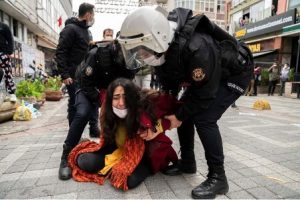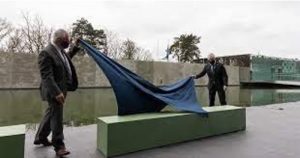By: Phyllis Duffy
Impunity Watch Staff Writer
ISTANBUL, Turkey – Protests erupt as President Recep Tayyip Erdoğan appoints Melih Bulu as the new rector at Boğaziçi University in Istanbul. Bulu is a businessman known for his links to President Erdoğan’s Justice and Development Party (AKP). The decision to appoint Bulu was condemned by university members and construed “as a government attempt to infiltrate one of the country’s last left-leaning institutions.” Bulu is the first rector selected from outside Boğaziçi University’s community since Turkey’s 1980 military coup.

Under AKP rule, Turkish institutions and society are “on a firmly religious and socially conservative path.” President Erdoğan hopes to raise a “pious generation;” however, younger people are snubbing his vision for the future of Turkey. This is due to the overwhelming lack of employment younger people, especially new graduates, are facing.
Can Selçuki, general manager of the consultancy Istanbul Economics Research, addressed why he believes the younger generations are resisting. Selçuki argues that younger people are “independent and articulate, and they know what they want.” With this, he argues that there has been “a shift away from the identity politics that currently define so much of the political sphere.” Today, Turkish people want the government to provide them with assistance and do not care which politician provides these services.
What started as a peaceful protest back in January 2021 — faculty members and students standing silently, socially distanced, and with their backs turned on the rector’s office —quickly turned into arrests and the use of excessive force by the police.
Since the demonstration started, around 700 protesters have been detained, many of which have since been released. The majority of those arrested have been students “marking one of the biggest displays of civil unrest in Turkey since the 2013 Gezi Park movement.” Five of these detainees were students who were arrested for carrying LGBTQ flags. On April 1, police violently arrested thirty-five students. Images of the April 1st events depict police grabbing students’ throats and throwing them to the ground. As time progresses, the violence towards the protesters has become increasingly more violent.
Erdoğan said “his government would not allow the Boğaziçi protests to spiral out of control,” referring to demonstrators as “terrorists and LGBT youth.” He believes that the protesters are working against the government’s “national and spiritual values.” A fourth-year political science student, Behren Evlice, explained how the students and young people of Turkey are furious because “[t]he state has attacked [them] with the police and violence.” He continued to explain that students simply want their opinions to be taken into consideration when talking about their university.
With no end in sight, police have placed a barricade at the university’s entrance, but this has not stopped protesters from moving towards the rector’s office. In response to these events, more protests are being called for throughout Turkey in support of the students.
For further information, please see:
BBC NEWS – Turkey’s Erdogan denounces LGBT youth as police arrest students – 2 Feb. 2021
Human Rights Watch – Turkey Resumes its Crackdown on Student Protesters – 2 Apr. 2021
Human Rights Watch – Turkey: Student Protesters at Risk of Prosecution – 18 Feb. 2021
Reuters – Turkey detains 50 more people after university protests – 26 Mar. 2021
The Guardian – Student protests grow as Turkey’s young people turn against Erdoğan – 4 Feb. 2021
The NY Times – Prestigious Istanbul University Fights Erdogan’s Reach – 1 Feb. 2021


